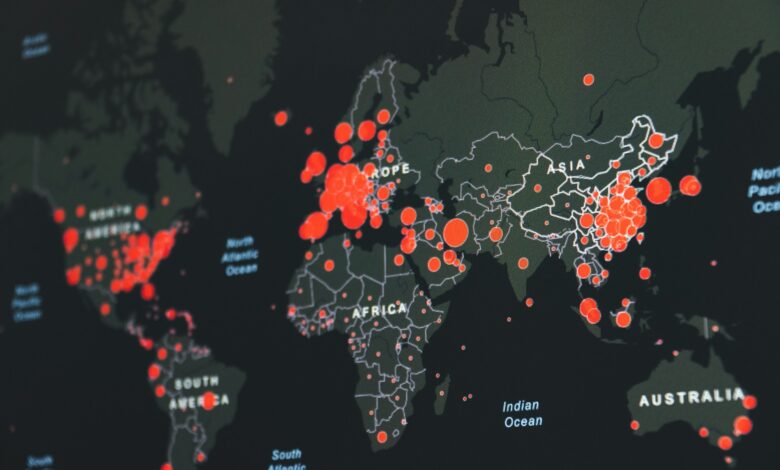
In a surprising turn of events, North America, which has long been considered a powerhouse in the technology sector, is witnessing a significant shift in its standing within the crypto development domain. The continent, primarily led by the United States, has been overtaken by other regions, marking a pivotal moment in the world of cryptocurrency innovation.
Asia Leads Crypto Developers While US Loses Ground
An in-depth analysis conducted by venture firm Electric Capital sheds light on the evolving landscape of crypto developers worldwide. By examining the profiles of hundreds of thousands of developers, their Global Crypto Developer Data for 2024 offers a comprehensive view of geographical trends in this burgeoning sector.
According to the report, which was shared on social media by Maria Shen, General Partner at Electric Capital, North America has experienced a continuous decline in market share over the past nine years. The analysis, which scrutinized over 110,000 developer profiles, reveals that the continent lost its leading position in industry developer share to Asia in 2021. Even earlier, in 2016, Europe surpassed North America, marking a significant shift. From 2015 to the present, North America’s developer share has plummeted by 45%, going from 44% to a mere 24%.
Asia’s Rise in the Crypto Development Arena
While North America grapples with its diminishing influence, Asia has emerged as a formidable force in the crypto development landscape. Over the same timeframe, Asia has more than doubled its market share, rising from 13% to an impressive 32%. This year marks a milestone, as Asia claims the top spot for crypto talent, edging past Europe’s 30% share.
Despite North America’s overall decline, the United States remains a key player, holding an 18.8% share of industry developers. However, this figure highlights a steady downtrend since 2015, with a significant 51% drop in developer share. During this period, the crypto industry itself has grown exponentially, expanding from a $5 billion market to a staggering $2.4 trillion. By 2024, a striking 81% of crypto developers are now based outside the US, with India and the UK following as the second and third largest contributors, possessing 11.8% and 4.2% shares, respectively.
Unclear Policies Impact Innovation In The US
The report raises critical questions about the United States’ regulatory environment and its impact on crypto development. Shen argues that the nation requires clear and transparent crypto policies to reclaim its leadership role. The lack of such policies has drawn criticism from industry figures and community members, who believe that US regulators’ stringent measures have stifled growth and development in recent years.
Challenges and Opportunities in US Crypto Development
Interestingly, more than half of crypto developers are now situated outside the US’s traditional tech hubs. California and New York, once central to tech innovation, now host just 22.3% and 13.7% of developers, respectively. This dispersion of talent presents an opportunity for job and wealth creation across the country, according to Shen. She warns that the decline in this sector represents a “national security and innovation drain” and should be addressed beyond partisan politics.
In response to these challenges, there has been a discernible push from investors for more definitive crypto policies from US politicians. This shift was evident earlier this year when US congress member Jamaal Bowman lost the NY Democratic primary, influenced by a Super Political Action Committee (PAC) that opposed his anti-crypto stance. Similarly, Pro-XRP lawyer John Deaton is vying for Senator Elizabeth Warren’s seat in Massachusetts, highlighting the growing political engagement surrounding cryptocurrency policies.
With the US presidential elections around the corner, the crypto industry eagerly anticipates a shift in the current administration’s approach, regardless of the election outcome. The hope is for policies that support innovation and restore the US’s standing in the global crypto development sector.
Conclusion
As the total crypto market capitalization reaches $2.36 trillion, the dynamics of crypto development are undoubtedly shifting. North America’s loss of ground presents both challenges and opportunities for policymakers and industry leaders. With Asia and Europe taking the lead, the US must adapt to maintain its relevance in this fast-evolving sector.







